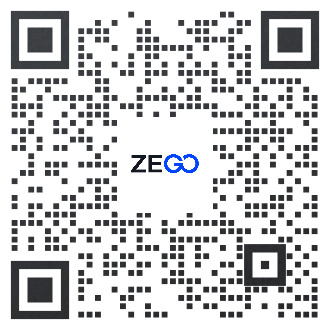- Documentation
- In-app Chat
- Server APIs
- Server callbacks
- Callback on message not sent yet
Callback on message not sent yet
Description
After setting this callback, when a user sends a message to a one-on-one chat, group chat or room chat, In-app Chat will initiate a request to your business server, and you can perform real-time operations on the message through the response, such as:
- Recording chat messages and intercepting requests for inappropriate speech;
- Implementing black and white list functions to determine which messages can be sent normally.
The supported message types for this callback are text messages, image messages, file messages, audio messages, video messages, and custom messages. command messages and barrage messages are not supported.
Based on the value of the response from your business server, you can make one of the following four judgments on whether to send the message:
| Value | Judgment | Whether to send the message | Result returned to the message sender | Whether the message recipient can receive the message |
|---|---|---|---|---|
| 0 | Neutral (not judged whether to send) | Send | Sent | Receivable |
| 1 | Send | Send | Sent | Receivable |
| 2 | Silently send | Send | Sent | Not receivable |
| 3 | Do not send | Do not send | Not sent | Not receivable |
Callback request
Request method: POST/JSON
The callback data needs to be decoded by UrlDecode.
Request endpoint: Contact ZEGOCLOUD Technical Support to configure the corresponding callback endpoint.
Transmission protocol: HTTPS/HTTP (HTTPS is recommended.)
Request parameters
| Public parameters | Type | Description |
|---|---|---|
appid |
String |
A unique identifier for the App. |
event |
String |
Callback event, the return value of this callback is before_send_msg. |
nonce |
String |
Random number, used to calculate signature. |
signature |
String |
The verification string, see Authenticating server-to-server callbacks for details. |
timestamp |
Int |
The current server time in Unix timestamp format, in seconds, used to calculate the signature. |
request_id |
String |
Request ID. |
| Business parameters | Type | Description |
from_user_id |
String |
Message sender ID. |
conv_id |
String |
Target session ID. |
conv_type |
Int |
Target session type:
|
msg_id |
String |
Message ID, which can be used to determine the uniqueness of the message. |
msg_type |
Int |
Message type:
|
sub_msg_type |
Int |
The specific custom type. The value is filled in when the user sends a custom message, and the value range is [0,200]. This parameter is meaningful only when msg_type is 200 (custom type). |
msg_body |
String |
Message content.
|
We recommend that you convert some parameters to Int for logical processing. The relevant fields include appid and nonce.
msg_body JSON string parsing result parameter description
| Parameters | Type | Description |
|---|---|---|
| md5 | String | The MD5 value of the file. |
| file_name | String | File name. |
| file_size | String | File size in bytes. |
| download_url | String | Download URL. |
| media_duration | String | Audio and Video duration, in seconds. |
Callback example
{
"appid": "1",
"event": "before_send_msg",
"from_user_id": "sender",
"conv_id": "receiver",
"request_id": "3501907290370176",
"msg_id": "1234232421343",
"conv_type": 0,
"timestamp": 1499676968,
"msg_body": "msg_body",
"msg_type": 1,
"signature": "abc",
"nonce": "321",
"sub_msg_type": 0
}Response parameters
| Parameters | Type | Description |
|---|---|---|
| result | Int | The value of your business server response to determine whether to send the message.
|
Sample response
{
"result": 0
}Return response
Returning an HTTP status code of 2XX (e.g., 200) indicates success, and other responses indicate failure.
Retry mechanism
If the ZEGOCLOUD server does not receive a response, it will retry after 3 seconds. If the callback fails after the second retry, it will no longer be retried and an exception is judged.
Note
When the ZEGOCLOUD client initiates a request to you, if an exception occurs on your business server, no message will be sent by default. If you want to send messages by default, contact ZEGOCLOUD Technical Support.

